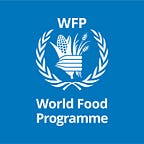“The cyclone season is coming; it’s important that we are prepared.”
The World Food Programme’s (WFP) Pacific Humanitarian Logistics Management workshop brought together first responders from the Pacific to provide trainings on improving coordination mechanisms and response to disasters.
by Maria Shumusti
In the world’s most disaster-prone region, the South Pacific Cyclone season is only two months away. In recent years, the Pacific Island Countries and Territories have witnessed more frequent and powerful cyclones, drought, rising sea levels and other weather and climate related events.
These growing concerns along with the geographical sparseness of the countries emphasizes the need for greater localised capacity, now more than ever. As such, emergency logistics preparedness and response coordination are critical to ensuring the safety and security of lives and livelihoods of the Pacific people.
From August 8–12, 40 participants from 23 organizations including National Disaster Management Offices (NDMOs) from Fiji, Vanuatu, Samoa, Tonga and PNG, UN agencies, Fiji Military (RFMF), Biosecurity, Fiji Ministry of Economy and other international organizations attended WFP’s Humanitarian Logistics Management workshop in Suva, Fiji.
The workshop covered trainings on emergency coordination and preparedness, information management, warehousing, stock management, procurement negotiations, and border processes — all logistic processes central to ensuring coordinated and effective disaster management.
Participants from Pacific NDMOs detail their accounts from the workshop.
“The cyclone season is coming; it is important that we are prepared. I’m grateful to have learned from my colleagues in the region, especially from the Tonga National Emergency Management Office (NEMO) and their experiences after the volcanic eruption and tsunami.”
Malia Pisi, Samoa NDMO’s Logistics Officer
“Fiji has experienced many Tropical Cyclones in the past few years, and we’ve learnt that emergency preparedness and response can’t happen without coordination and collaboration. This week-long humanitarian logistics workshop has brought Pacific NDMOs, UN agencies and logisticians together to identify gaps as well as strengths in our own logistics capacities.”
“As we draw closer to the cyclone season, preparedness is now more important than ever. We’re grateful to all partners for this workshop that came at a very critical time.”
Vasiti Soko, Director of Fiji NDMO
“I’d like to take this opportunity to acknowledge the support of WFP…I must admit that this training should be compulsory and to all the NDMOs”
Viliami Tongamana from Tonga’s National Emergency Management Office
“Both our governments and our international partners, they’ve been investing some time to train the people back in Vanuatu. But then once that opportunity opened in some other countries, the people …..go to the other countries….. So, when you need them, you call them up, but their phones are not working. Then it becomes a challenge.”
Jimmy Naura, Logistics Officer at Vanuatu NDMO, identifying some of the gaps that make such trainings critical.
WFP is consulting with partners to establish and sustain institutionalized capacity strengthening that will contribute to address the issues arising from capacity retention.
Moving forward, WFP and participating organizations have also identified new avenues for partnerships that will support effective coordination practices, especially in case of a disaster.
The week-long workshop was organised in partnership with HELP Logistics, the Pacific Logistics Cluster, the International Federation of Red Cross and Red Crescent Societies and DHL and made possible through the support of the United States Agency for International Development (USAID).
